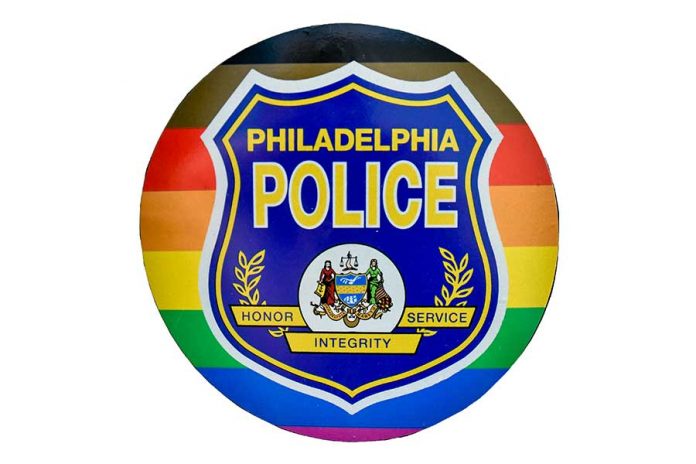This week, the Philadelphia Police Department held the latest of its Coffee with a Cop community outreach events — this time in the heart of the gayborhood at Starbucks at 12th and Walnut Streets. The events intend to solicit feedback from specific communities and to enable area residents to get to know, in an informal setting, some of the officers serving their neighborhood.
Police, in conjunction with Starbucks, have been conducting these events since last summer in various Philadelphia neighborhoods. This week’s event was the first to focus on the city’s LGBTQ community, specifically.
According to Sgt. Nick Tees, the Department’s LGBT liaison officer, the hope is that the event’s informality will encourage people to be more open about their concerns in a non-confrontative setting. “We also want to let people know how we can help them when they have a problem, who they can talk to.”
Inspector Altovise Love-Craighead feels that communication between police and the community serves to forestall the animosity and distrust of the police, which is prevalent across the nation.
“One of the important purposes of the Coffee with a Cop program is to let people get to know us as human beings — to let people know that the folks underneath the uniform are also members of their community who understand their concerns,” she said.
Sgt. Tees was heartened by the response officers received from people who wandered in for their morning coffee. “We haven’t really been getting much in the way of concerns or problematic issues. Mostly it’s been expressions of appreciation for the work we do. It’s good to get feedback like that in that it lets us know that what we’re doing is making an impact.”
Deputy Commissioner Joseph Sullivan, also in attendance, said, “It’s important to get feedback from the community. Communities like the LGBT community have a history of distrust of the police, which is understandable given their past experiences. But clearly matters have greatly improved over the past several years. But we can do more, which is our goal.”
A 2013 Williams Insitute survey found that 48 percent of LGBTQ victims of violence experienced police misconduct, and the 2015 U.S. Transgender Survey found that 58 percent of trans folks who interacted with law enforcement who knew they were transgender reported harassment, abuse or other mistreatment by police.
In June, the Philadelphia Police Department announced a policy overhauling guidelines on law enforcement interactions with transgender and nonbinary people.
Under the new policy, Directive 4.15, officers are required to include both a person’s chosen and legal name on paperwork, use preferred names and pronouns when interacting with and speaking to the media about trans people, and transport trans people in custody to the nearest medical facility for immediate needs, including hormone therapy.
Before, police worked under Directive 152, a 2014 policy that included terms like “cross-dressers” and “transsexual” and indicated an arrested individual’s gender was that which appeared on the person’s government-issued ID, except when an arrestee had undergone gender-affirming surgery. When an ID wasn’t available, police had the authority to assign gender based on genitalia.
Along with building trust, the Coffee with a Cop program is a recruitment effort, to make sure that police officers accurately reflect the diverse communities they serve — which includes the LGBT community. For several years now, the Philadelphia Police Department has had a program of actively recruiting LGBT officers.
Sgt. Rob Ryan, who spearheads the Department’s LGBT recruitment, admitted that LGBT recruitment has been a challenge, but that progress is being made. “For instance, the membership of GOAL [the Gay Officer’s Action League], which has a contingent every year in the gay pride parade, numbers well over a hundred. And there are a large number of out officers beyond that membership.”
The Coffee with a Cop program is an ongoing affair. Tees asserted that future LGBT-specific events would be held at other Starbucks locations throughout the gayborhood, adding that the coffee chain approached the police about initiating a program like CwC.
That outreach was spearheaded by Sean Korman, who manages one of Starbucks’ South Philly locations.
When asked what inspired him to reach out to police, he admitted, “The unfortunate event last year was a serious wake-up call to take our community responsibilities seriously.”
The “unfortunate event” Korman referenced was an incident where Black men were unceremoniously ejected from a Starbucks for apparently insufficient reasons.
“We realized that if we wanted to be a part of the communities we were in, we actually had to step up and play the part we claimed we wanted to play in the communities we serve.”
